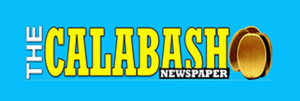By Amin Kef Sesay
It must be stated with all amount of certainty that Sierra Leone is not an oil producing country which means it is a net importer of all petroleum products consumed by the populace. Marketing of petroleum products, which include petrol, diesel, gas, kerosene etc, are done by privately owned companies and Government only plays a regulatory role through the Petroleum Regulatory Agency (PRA) to ensure that these oil marketing entities perform according to the rules in order for sanity to prevail within the sector.
In this kind of set up, Government does not determine the price of petroleum products because external forces that impact the price cannot be controlled by Government. What we have witnessed over the years is that the best that the Government could do is to provide subsidies which in itself are not sustainable as it depends on the amount of revenue that the Government could mobilize as against other competing development programmes that need funding.
As a nation, it has been established that Sierra Leone consumes in excess of 1.1 million litres of petroleum products per day but interestingly the country can only store 40% of what is used per day.
Since this country is a net importer of petroleum products, having an inadequate storage facility with only one jetty what this means is that there is frequent replenishment which is done every two weeks.
To compound this precarious situation vis-à-vis the importance of petroleum products to human existence the frequent replenishment has prompted certain unscrupulous individuals to seize that opportunity to hoard petroleum products or speculate against the availability of petroleum products most times leading to panic buying with black marketers having field days by inflating pump prices.
It must be underscored at this juncture that Sierra Leone does not determine its oil or pump prices. The prices of petroleum products are determined by a combination of the international Oil reference price (PLATTS) and the foreign exchange rate.
In other words, the pump price of petroleum products, including petrol, diesel, kerosene etc. in the country, is efficiently determined by a +/-5% trigger mechanism of the landed cost, that is the cost of landing the shipped petroleum products in the country and that is mostly driven by the combined effect of the International Oil Reference Price (Platts) and available as well as accessible Foreign Exchange
However, the country’s pricing regime is well structured, transparent and reviewed monthly. From what this medium gathered, pump prices of petroleum products changed six (6) times since 2018 and out of those, it was reduced three (3) times during that period.
It is good to note that in spite of the hike in global prices, the Government of Sierra Leone has kept the pump price of petrol and diesel unchanged at Le8, 500 per litre which comparatively is far lower than per litre prices in the entire West African sub-region. In other words, the country’s fuel prices are the lowest in the sub-region. The matrix below clearly shows this on a comparative basis of sub-regional fuel prices converted in Le/Litre as at 31st May, 2021 taking into consideration: Sierra Leone, Guinea, Liberia, Ivory Coast, Ghana and The Gambia:
Petrol– Sierra Leone Le 8,500.00, Guinea: Le 9,450.00, Liberia: Le 7,879.33, Ivory Coast: Le 11,728.05, Ghana: Le 11,240.11, The Gambia Le 11,453.17.
For Diesel the comparison is as follows: Sierra Leone: Le 8,500.00, Guinea: Le 9,450.00, Liberia: Le 9, 192.49, Ivory Coast Le 11, 728.05, Ghana: Le 11, 172.45, The Gambia: Le10, 904.09.
In terms of Kerosene the comparison is as such: Sierra Leone: Le 8, 500.00, Guinea -, Liberia: Le13, 279.25, Ivory Coast Le10, 583.85, Ghana: Le9, 076.84, The Gambia: Le 8,573.04.
The Exchange Rate source is the Bank of Sierra Leone as at June, 3rd 2021. What this tells us is that at the moment we have the cheapest fuel pump price within the West African sub-region.
This medium was further made to understand that between May and December 2020, although there were oil price increases all over the sub-region and in the world, the Government did not allow the high costs to be passed on to the poor consumers. At first Government suspended the automatic pricing adjustment mechanism since May 2020 to date.
The Government intervened by injecting about Le66bn during that period and Le17.43bn in January 2021 to support the pump price stabilization. Again, since May 2020 to June 2021 Government has subsidized about Le132.11bn.
In as much as there has been a rise in the price of crude oil on the world market as it is the case at this material time, the rate and manner in which the Government of Sierra Leone will continue to sustain leveraging subsidy on petroleum products could largely depend on how much Government will continue to mobilize additional revenue over a specific period of time.
As a matter of fact it is worthy of note that the intervention of the Government, as had been stated in terms of subsidies, was dictated by the wild prevalence of COVID-19 in order to lessen economic hardship brought about by the spread of the virus.
The apprehension now is whether the mentioned stance of Government will be maintained amidst competing funding for the implementation of various development programmes.
What for now is certain is the undiluted truism that conditions on the world market are not favourable in terms of seeing a downward trend in the prices of petroleum products and it is something that is bound to affect developing nations like Sierra Leone negatively leaving most people, who are oblivious of the market realities on the ground, blaming Government whenever there is an increase in pump price though the latter does not import and market petroleum products.





